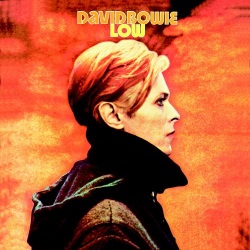 | 1. Low (1977). The second of three albums in a row that are just amazing. Low is the most radically unusual album by any mainstream rock artist that was actually meant to be listened to. It’s strange, fragmentary, and quite unique in its sound, but it’s absolutely compelling. Brian Eno helped make it that way. |
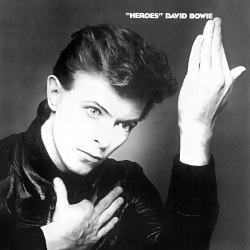 | 2. "Heroes" (1977). This follow-up to Low has a darker feel, and the songs are more like traditional songs. Brian Eno is back, and Robert Fripp on guitar really stars, especially on the magnificent title song. |
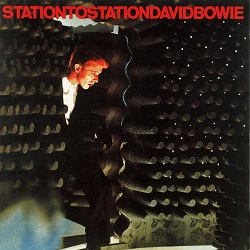 | 3. Station to Station (1976). A bit of the white funk/soul of the previous album Young Americans continues, but it’s much more sinister and challenging, especially the title track. Wonderful, memorable songs. |
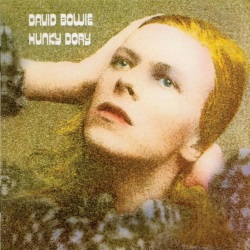 | 4. Hunky Dory (1971). Here is another group of three consecutive brilliant albums, this time from the start of the 1970s. They each sound completely different. Hunky Dory is the album to play to someone who likes relatively traditional songs and needs to be convinced about Bowie. Many highlights but "Life on Mars" is incandescent. (Rick Wakeman, who has worked with countless artists on hundreds of songs, says that it was “the best song I had ever had the privilege to work on.”) |
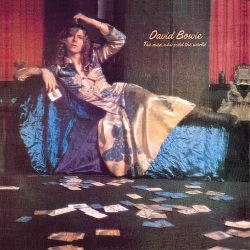 | 5. The Man Who Sold the World (1970). Utterly different from the albums before and after it, this one is sort of heavy metal/prog. Dark, apocalyptic and sinister, and mostly pretty heavy, but exciting throughout. |
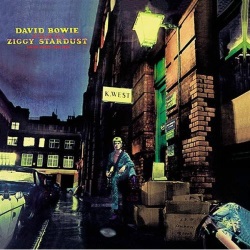 | 6. Ziggy Stardust and the Spiders from Mars (1972). Most serious fans consider this his best album. I’ve got it at number 6. It’s still brilliant, but not as brilliant as the others above it. It’s off-centre pop-rock with great songs. |
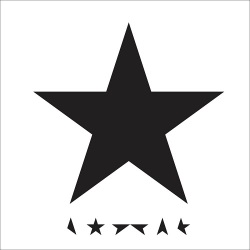 | 7. Black Star (2016). It’s hard to properly assess the worth of an album that’s only been released for a few weeks, especially a Bowie album, but at the moment at least this one seems outstanding. The title track is creepily uncomfortable in a way that only Bowie at his best can do. The album sounds like an artist thriving, rather than one on the brink of dying.
Postscript 23 Oct 2018. After almost three years living with this album, I'm not inclined to move it within this ranking. It's wonderful. |
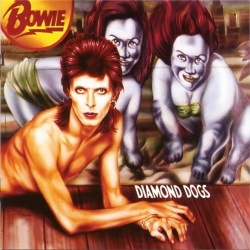 | 8. Diamond Dogs (1974). Excellent production, excellent songs, a great unified feel for the album. This was the last of his run of four early-70s glam rock albums before he started heading off in radically different directions (again). |
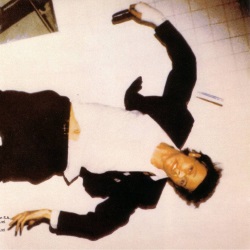 | 9. Lodger (1979). This was the third of the Berlin trilogy (after Low and Heroes). It has some excellent tracks, but not quite the sustained brilliance of the other two. A highlight is the guitar playing of Adrian Belew. Bowie has worked with some incredible guitarists, but in my view Belew is the best. He also plays on the live album Stage. |
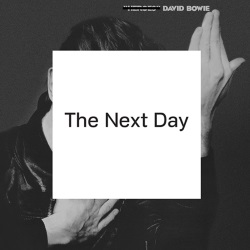 | 10. The Next Day (2013). Given Bowie’s ill-health and a 10-year gap, fans were not expecting to see another album, let alone one this good. Surprisingly, my top 10 consists of eight albums from the 1970s and two from the 2010s. |
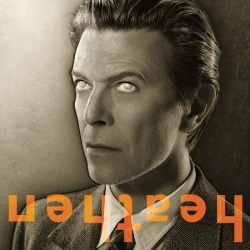 | 11. Heathen (2002). One of five very good Bowie albums released between 1995 and 2003. This is my favourite of the five. It’s interesting and consistently good. |
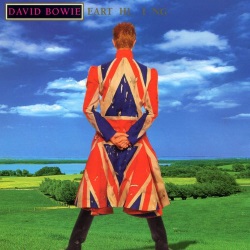 | 12. Earthling (1997). Almost as good as Heathen, though it’s very different. He’s being creative with “Drums ‘n’ Bass”, an English genre of electronic music. |
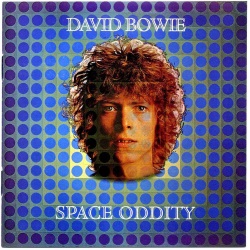 | 13. Space Oddity (1969). The title track is such a standout that it boosts my ranking of this album, but the rest of the album is good too, in a folky sort of way. |
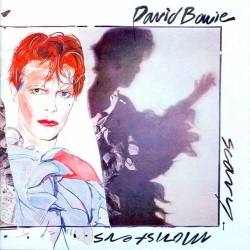 | 14. Scary Monsters (and Super Creeps) (1980). Like Space Oddity, this contains an outstanding track ("Ashes to Ashes" this time) and a set of other very good tracks. This was the last really good album he made for 15 years. |
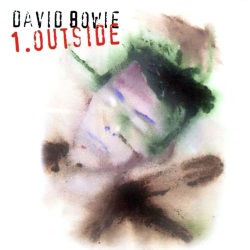 | 15. Outside (1995). This was the next very good album he made after Scary Monsters (there were seven others in between). He reunited with Brian Eno, who was such an important part of Low and Heroes, for another album that is quite strange. It’s not as artistically successful as those earlier gems, but it is definitely worth having. |
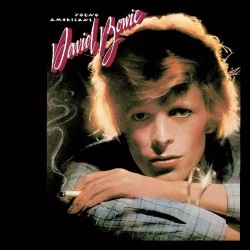 | 16. Young Americans (1975). One of his most radical departures: from the glam rock of Diamond Dogs to the white funk and soul of this one. Contains two of Bowie’s very best songs, "Young Americans" and "Fame", but the rest of the album is not as strong. |
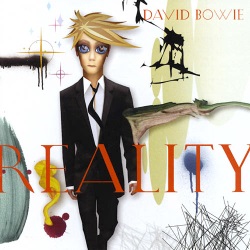 | 17. Reality (2003). His last album before health problems and other activities kept him away from recording for a decade. It would have been a very good final album, though his actual final album is substantially better. |
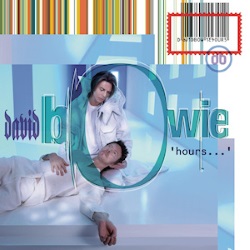 | 18. Hours (1999). My least favourite of the albums he released after his mid-1990s return to form (the energy level feels a bit low for Bowie), but it’s still pretty good. |
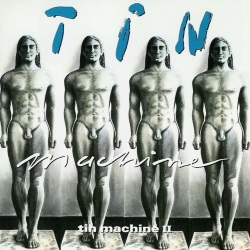 | 19. Tin Machine II (1991). Tin Machine was Bowie’s attempt to break away from the hyper-commercial dross of his mid-1980s albums. It partly worked. It sounds like an American, heavy-guitar-based rock band with Bowie as singer – because that’s what it was. I quite like both Tin Machine albums, but something was lacking. Originality, probably. |
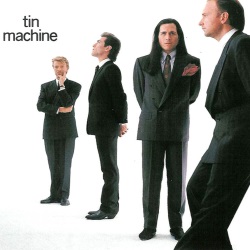 | 20. Tin Machine (1989). See Tin Machine II. This was the first of the two Tin Machine albums. Also quite good. |
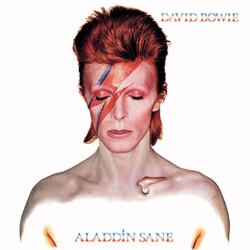 | 21. Aladdin Sane (1973). Many Bowie fans would gasp at me putting this below Tin Machine, but it has never really connected with me. I think it’s by far the weakest of his 1970s original albums. Neither the songs nor the production are as good as on most of his other albums. |
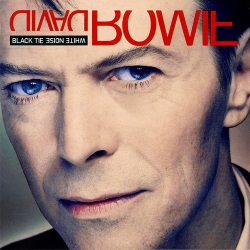 | 22. Black Tie, White Noise (1993). The first hint that a return to something like his best form might be possible, after a decade of mediocrity. It’s still too commercial sounding in an American way, but there are some interesting and enjoyable parts. |
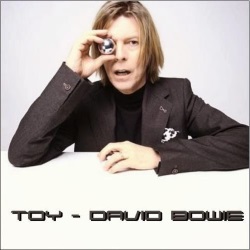 | 23. Toy (2001). This album was made for commercial release but it never came out (I guess it will at some stage). It was leaked online in 2011. It includes a number of re-makes of old Bowie songs from the 1960s. The production is good but it lacks great songs. |
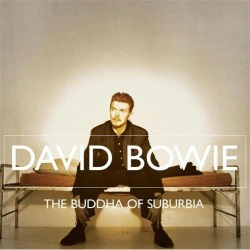 | 24. Buddha of Suburbia (1993). Some soundtrack music, with words added to some pieces. Bowie himself rated this album really highly. To me it's just not bad. His instrumentals on the Berlin albums were much more compelling. |
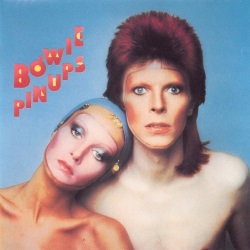 | 25. Pin Ups (1973). Disposable. Mostly not-very-good cover versions of some of Bowie’s favourite songs from the 1960s. Includes one great track: "Sorrow". |
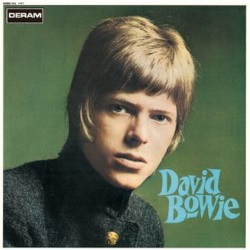 | 26. David Bowie (1967). His debut was completely different from everything that followed. It now sounds very dated. There are a few nice songs but too many novelty songs that make me cringe. |
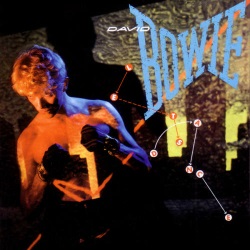 | 27. Let’s Dance (1983). Bowie’s most commercially successful album by miles. It’s slick, but creatively dead. The death was even more obvious on his next two albums (which are the final two in this list) but it was already there on this one. Even his hair was awful in this period. |
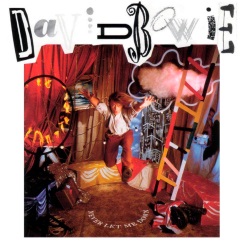 | 28. Never Let Me Down (1987). I previously had this as the lowest-ranked Bowie album (uninspiring songs, terrible production), but the release of a new version with mostly re-recorded instruments in 2018 (and without the dreadful 1980s-style production) made me appreciate it a bit more. The re-recorded version, if ranked separately, would go at about number 19 on this list. |
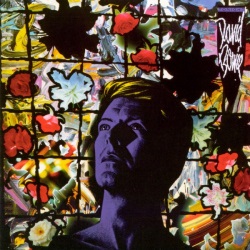 | 29. Tonight (1984). This is just aweful. Over-produced, boring, and lacking any good original songs. The version of "God Only Knows" on here is criminally bad. |





























Hi David. Thanks for the list; it is very interesting and a little challenging.
Where would you rank “David Live” and why?
I understand the creativity of albums like Low and Heroes, but in concert they were dull as dishwater. The A-grade rock of Ziggy or Alladin Sane and the dancing funk of Young Americans were always fresher and much more enjoyable, in my experience.
Cheers
Brett
ps I was14 when Diamond Dogs came out, so the 1970s rock albums hold a special place in my adolescence.
My list is about studio albums, not concerts, but fair enough. I saw him live twice in 1978 (front row once) and I loved the stuff from Low and Heroes. But I can see that you might prefer the more straightforward rock or dance stuff in concert.
I found David Live pretty disappointing. The sound quality is not that great, and the distinctive sound of each of his albums was rather homogenized. I don’t much like his singing on this one, and the playing seems rather flat. Apparently Bowie and his band had a fight about money before the show, and I reckon it shows.
I much prefer Stage, because it focuses on the era I love best, it’s much better recorded, and the performances are much better. But to me, his strength is studio recordings, not live recordings.
Sounds like we’re the same age.
“Even his hair was awful in this period”
Gold!
Thanks for another enlightening and entertaining blog.
A fair and well argued ranking. Respect!
Such is Bowie’s greatness that you can passionately perm, rank and argue so many of these classic albums in so many different orders. My favourites have changed over the years, but are now more fixed. Low, Hunky Dory, Ziggy Stardust & Station to Station will always form part of my top 5, but anyone of about another 5 albums could join them.
Surprised at your relatively low ranking for Scary Monsters, Aladdin Sane (the overall exotica of the album, especially with Mike Garson’s piano, washes over some admittedly weaker, quickly written songs) and Young Americans (“Fascination” and “Can You Hear Me ?” are classics, albeit “Across the Universe” was the worst thing he committed to vinyl in the whole of the 70’s.
“Earthling” is ranked far too high for me, but hey that’s the beauty of Bowie. Something for everyone.
Cheers,
Thanks Ian. Very fair comments. Totally agree that this is a very personal thing, but your top 4 is really close to mine.
Yes, “Across the Universe” is dreadful, but in my view not quite as bad as what he did to another classic, “God Only Knows”, on Tonight (in the 80s).
Thinking about it, I’d say Bowie was really not good at covers. He did quite a lot of them, but the only one I think is really strong is “Sorrow”.
Cheers Dave
Aladdin Sane has to be higher